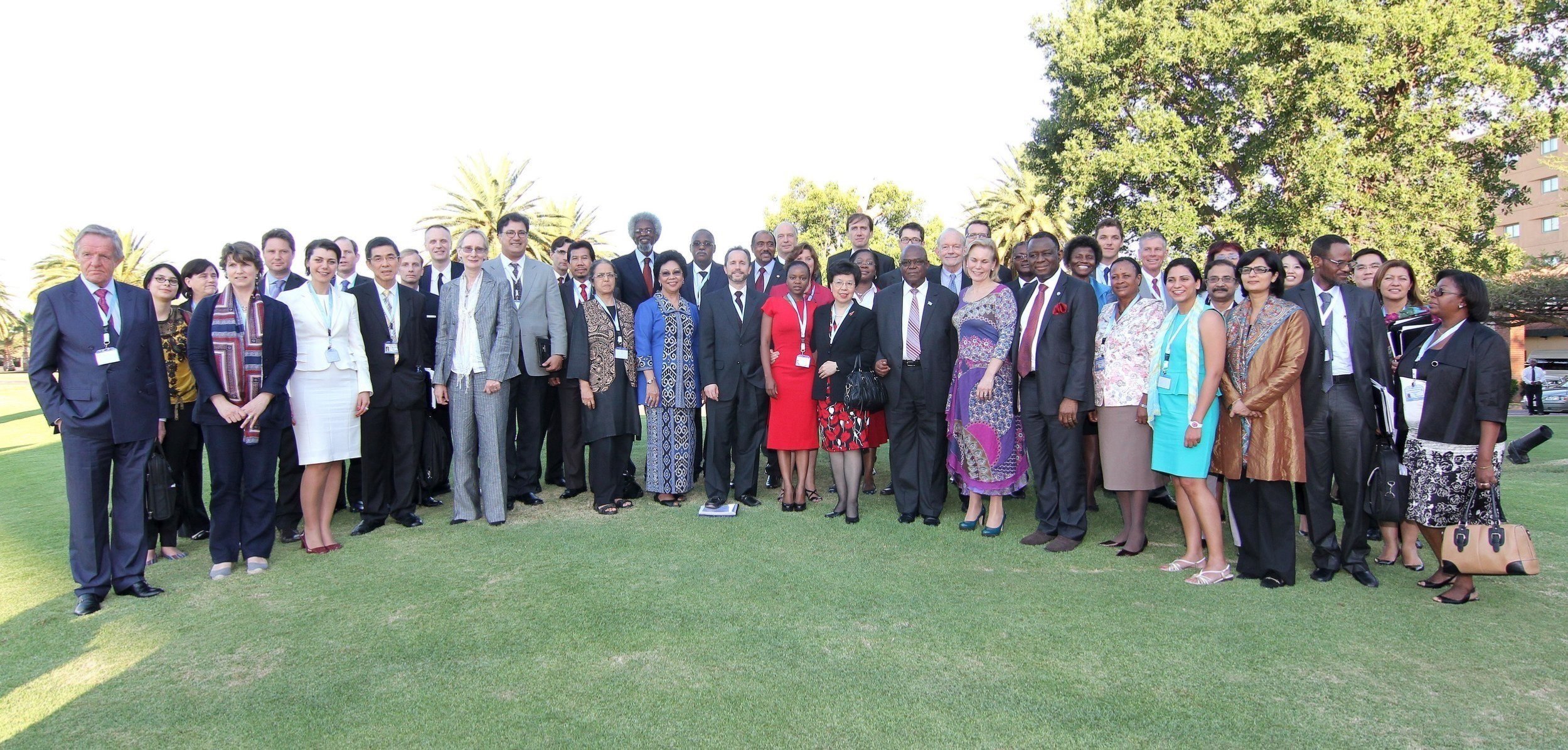
Advancing Global Health
Over the past few decades, global health has seen significant improvements, yet disparities in health outcomes persist both between and within countries. While the concept of global health is challenged today, I firmly believe that investing in global and multilateral cooperation is essential. However, to address the evolving world, we must adapt our concepts and collaborative approaches.
Advancing the concept of Global Health
-
. ... beyond the development paradigm
We need to strive to transcend global health beyond merely being an agenda for development cooperation. Our vision must be to formulate a new, united agenda that brings together stakeholders from all corners of the world. By forging robust global and multilateral cooperation, we can tackle the most pressing health challenges together.

-
....beyond the unfinished MDG agenda
One of the core focuses must now also be to confront the rising burden of premature non-communicable disease (NCD) mortality. Our work should target major risk factors contributing to NCDs, addressing not only their immediate impact but also the underlying structural challenges. Moreover, we must recognize the need to be proactive in tackling present and future health threats and emergencies that cross borders.

-
....beyond the health sector
The health sector alone cannot achieve optimal health outcomes. A holistic approach is needed that involves the transformation of food, energy, and infrastructure systems. By actively engaging in these transformations, we can create a more conducive environment for improved health and well-being.

Three current priorities and areas of work
International Politics, Leadership, and Diplomacy for Health
The global landscape is witnessing a growing interest in international politics, leadership, and diplomacy for health. The need for practical approaches to navigate political environments, employ effective diplomacy, and understand the applied political economy of health has never been more crucial.
I am working with a team on a new program and collaboration between the Karolinska Institute and the Stockholm School of Economics in International Politics, Leadership, and Diplomacy for Health. We are organizing an international conference in Stockholm in November and looking forward establishing collaboration with other institutions with similar interest.
Healthy Societies for Healthy Populations
People are living longer lives but they are not necessarily leading healthier lives. Developments in society and technology, such as urbanisation or digitalisation, bring both improvements and challenges to people’s health and wellbeing. Although average life expectancy is steadily increasing, too many people die prematurely or suffer from growing health inequities, such as lack of access to healthy food or clean air. The cascading crises of climate change, food insecurity, conflict, economic insecurity, and inequities pose serious threats for humanity yet present an unprecedented opportunity to reimagine societies and make them thrive, more sustainable and healthier from the core.
This work is a continuation of a successful two-year collaboration with Wilton Park on Healthy Societies for Healthy Populations. A team is being estbilish to take this forward and I will serve as a principal visiting fellow at the International Institute for Global Health, UN University in Malaysia.
Pandemic Prevention, Prepardness and Response
The Independent Panel on Pandemic Preparedness and Response has provided comprehensive and concrete recommendations backed by rigorous analysis and evidence. Regrettably, the required political decisions to support the implementation of these recommendations are still pending. In light of this pressing need, I am resolutely committed to continued engagement with the esteemed former Panel co-chairs and members.
I will be part of monitoring and reporting on the progress or lack thereof, aiming to drive real progress in pandemic prevention, preparedness, and response. We need an international system fit to manage the next outbreak of a disease with the potential becoming a pandemic and not resulting in the same devasting situation we saw during Covid-19.





